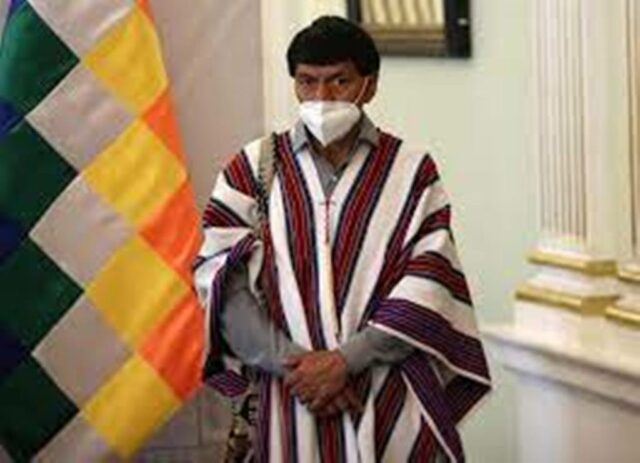The creation of the Ibero-American Institute of Indigenous Languages (IIALI) will be the contribution of Latin America to preserve and promote the more than 500 native languages spoken in the region, many of them at risk of disappearing and with them, ancestral knowledge of these nations.
These aspects were highlighted by the Vice Foreign Minister of Bolivia, Freddy Mamani Machaca, and the technical secretary of the Fund for the Development of Indigenous Peoples of Latin America and the Caribbean (Filac), Gabriel Muyuy, in an interview with Efe, regarding the activities that take place in La Paz to inaugurate the institute. The creation of the institute was defined at the Ibero-American Summit held in 2006 and was ratified and promoted in similar meetings in 2018 and 2021, recalled Mamani, who chairs the Filac Board of Directors.

The organizations in charge of carrying out the initiative are Filac, based in La Paz, the Ibero-American General Secretariat (Segib) and the Organization of Ibero-American States (OEI). “The IIALI initiative constitutes a valuable contribution from our region of Latin America and the Caribbean to the international community for the protection and promotion of indigenous languages”, said Mamani. It will also be a “fundamental tool” for South-South cooperation to revitalize them within the International Decade of Indigenous Languages proclaimed for the period 2022-2032 by the United Nations, he pointed out.
Precisely one of the objectives of the institute is “to raise awareness about the situation of indigenous languages and the cultural and linguistic rights” of these peoples, in addition to promoting their “transmission, use, learning and revitalization”, said the Bolivian deputy foreign minister. Among his tasks will be to provide technical assistance to Latin American countries so that they formulate and implement public policies to preserve indigenous languages and cultures, he indicated.
Regional context
The Bolivian deputy minister mentioned the UNESCO data that indicates that every 2 weeks one of the estimated 7,000 languages spoken in the world disappears. “And behind this disappearance, the culture, the codes of the indigenous peoples, the life systems, the science of the indigenous peoples, their knowledge, their knowledge, obviously disappear”, he warned.
In the specific case of the region, a Filac study published in 2021 showed that of the 827 indigenous peoples that exist in Latin America and the Caribbean, only 557 retain and speak their own language, Muyuy explained. “This is due to different factors. Education systems have not contributed much to the vitality of indigenous languages and cultures, rather they have been weakened by racist and sometimes structural pressure factors», he lamented.
Within those 557 indigenous peoples, there are many who are “at a very high risk of losing their languages” due to their small populations, the Colombian warned. Muyuy mentioned as examples the Colombian towns Chiripo, which only has 67 people, and Wipiwe, with only 106 members.
These towns are very traditional; they speak “perfectly” their language. They do not communicate in Spanish and there is a risk that they will become extinct “due to any natural phenomenon, some epidemic or disease” or due to pressures from the context, such as, for example, that their children cannot speak in their native language at school, he said. “There is a reality of an emergency situation because after the loss of a language and a culture, a great wealth of traditional, scientific knowledge is lost, knowledge that is millennia old and that, in a framework of inter-scientific dialog, today more than ever is fundamental for all of humanity, not just for indigenous peoples”,Muyuy added.
Institute’s relevance
In this context, the IIALI will be launched and the initial step will be the first meeting of its Intergovernmental Council where the structure will be defined, the technical unit will be delegated and the regulations for its operation will be approved, explained Deputy Foreign Minister Mamani. Additionally, last Friday the blended seminar “The IIALI: Angular Stone of the International Decade of Indigenous Languages in Ibero-America” was scheduled.
For Muyuy, the relevance of having an instance like the institute, which is also unique in the world, is that it will strengthen the countries in the “technical and investigative” parts and in processes of language practice and education systems, among others. “The institute is a horizontal cooperation mechanism between indigenous peoples, governments, specialized organizations, it is to put the whole society, all the institutional expressions to work so that culture and languages can regain their strength”, considered the secretary of the Flac.
Mamani stressed that the instance will also allow strengthening the actions that are underway in the countries and exchanging experiences and good practices in this regard. Up to now, Mexico, Guatemala, El Salvador, Nicaragua, Panama, Colombia, Ecuador, Peru, Bolivia, and Paraguay have given their political support to the creation of the institute.

